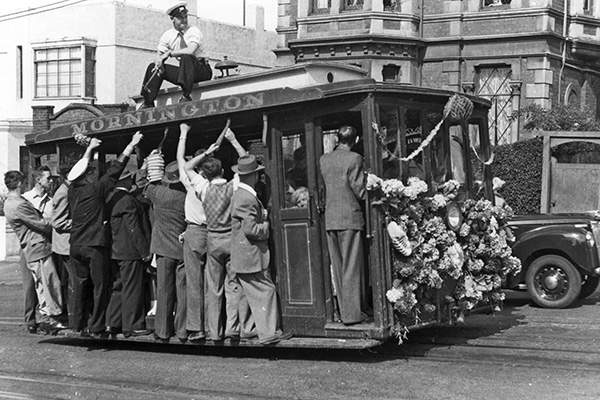Dunedin Gets Cable in Confused Quest to Catch Up With Rest of World
Over the course of two information sessions held at the Otago Museum, the Dunedin Cable Car Trust revealed that the project will be broken into steps, with the first to build a terminus and museum in Mornington Park, which will open in 2017. Other steps include the installation of tracks up High Street, at an estimated cost of $15 million, with the cable car to be in operation by 2021.
Critic spoke with Dunedin Cable Car Trust Chairman Phil Cole, who hopes that reintroducing cable cars to Dunedin will “bring more people into the city [and] act as a catalyst to regenerate Princes Street between the Octagon and the Exchange.”
Cole informed Critic that energy-wise, the cable cars are “more efficient than diesel,” and that given cable cars are “specifically for hilly suburbs,” they may be the most efficient form of transport available for Dunedin. “Over the last 130-plus years that the cable cars have been running, no replacement has been found yet, but that’s not to say one will never be found.”
The estimated $21 million will be funded entirely through fundraising, including private, public and corporate donations, as well as grants and fundraising activities according to Cole. “We are not asking for any ratepayer money from the DCC or ORC. The stadium saga can be held up as a classic example of how not to go about fundraising.”
As for whether the Trust will be able to secure support from Dunedin’s transient student population when the likelihood of them being around to see the final product is slim, Cole said there would still be something to gain from students supporting the Trust. “[Students] can help in various ways whilst they are here, both in a voluntary role but also in a practical way involving projects, 3D design and graphics, etc. that could be included in their course work.”
The Trust also have support, including “technical support” from San Francisco, which had the first operational cable car service in the world. The project has yet to gain formal approval from the DCC, but Cole said the Trust were looking to obtain a memorandum of understanding. However, Cole remarked that the “building of understanding is a constant and sometimes long on-going task.”








